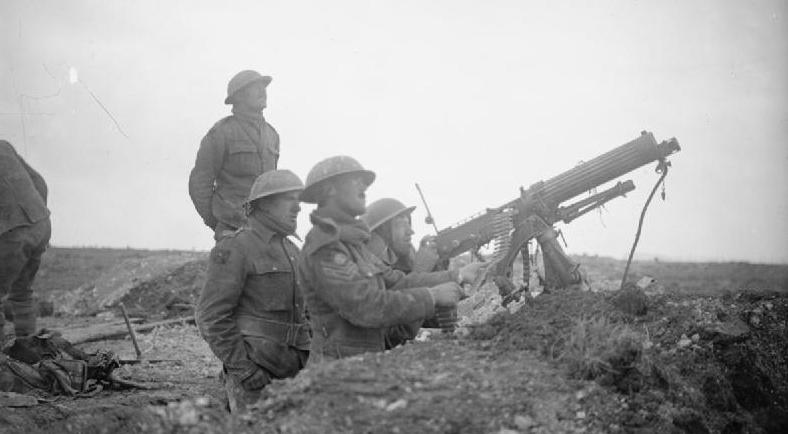
Churchillian Maxims: “Take the Enemy into Consideration”
“Take the Enemy into Consideration”: Excerpted from an article for the Hillsdale College Churchill Project. For the original text including endnotes, please click here. Subscriptions to this site are free. You will receive regular notices of new posts as published. Just fill out SUBSCRIBE AND FOLLOW (at right). Your email address will remain a riddle wrapped in a mystery inside an enigma.
Q: Accounting for the enemy
No matter how enmeshed a commander is in his thoughts, it is sometimes necessary to take the enemy into account. Churchill was a strong proponent of understanding the enemy’s intentions, before plunging ahead with a military campaign, Can you please confirm whether and where Churchill said this? —C.S.
A: More or less correct
Like the “Curate’s Egg,” parts of this version are excellent. The correct wording is: “However absorbed a Commander may be in the elaboration of his own thoughts, it is necessary sometimes to take the enemy into consideration.” It occurs in Churchill’s memoir of the Great War, The World Crisis, one of his three best war books.
Churchill emphasized taking enemy thinking into account many times to his military commanders. Being human, he also occasionally ignored the concept. One thinks of how he brushed away objections to forcing the Dardanelles (1915), or advancing on Vienna through the Ljubljana Gap (1944). The latter, of course, helped him get his way over the Italian campaign. But his commanders were aware of, and persuaded him about, enemy abilities to constrict that Ljubljana with an enfilade.
Churchill’s peerless writing
Aside from verifying the quotation, your question involves a vivid example of Churchill the literary stylist. He makes complex strategy easy to understand. He tells us what really mattered.
In this passage, he explains how the French artillery commander General Robert Nivelle was frustrated. Planning to attack the vulnerable Arras-Noyon salient in 1917, Nivelle failed “to take the enemy into consideration.” By the time the he attacked, the enemy commander Erich Ludendorff had withdrawn. Churchill writes:
“General Nivelle’s Experiment”
General Joffre‘s plan for the campaign of 1917 was simple. It was to be a continuation of the Battle of the Somme…. The salient formed by the German line was to be crunched by convergent assaults of the British and the French….
At this moment an unexpected event occurred. Ludendorff intervened, and the Germans acted. The great military personality which Germany had discovered in her need, armed in the panoply and under the aegis of Hindenburg, by one sure stroke overturned all the strategy of General Nivelle…. Leaving a screen of troops to occupy the abandoned positions and fire off their guns and rifles, the German Army withdrew 50 miles from the threatened area of the salient, and with unhurried deliberation….
Nor does Churchill fail to mention the unnecessary devastation the Germans left in their wake:
The German General Staff called this long-prepared operation by the code name Alberich, after the malicious dwarf of the Nibelungen legend. They left their opponents in the crater fields of the Somme, and with a severity barbarous because far in excess of any military requirements, laid waste with axe and fire the regions which they had surrendered.
No enemy to attack
The retrograde movement, rumoured for some days, was first detected on the front of the British Fifth Army. On February 24…British patrols found the hostile trenches empty. The Fifth Army Operations Order of that same night said, “The enemy is believed to be withdrawing.” Immense clouds of smoke and the glare of incendiary fires by night proclaimed the merciless departure of the enemy. On the 25th he was reported to be retiring on a front of 18,000 yards, and on February 28 the British Intelligence spoke of a retirement to the Hindenburg Line.
He then offers the maxim you allude to:
However absorbed a Commander may be in the elaboration of his own thoughts, it is necessary sometimes to take the enemy into consideration. Joffre’s plan had been to bite the great German salient in February; and whether it would have succeeded or not, no man can tell. The Nivelle plan was to bite it with still larger forces in April.
But by March the salient had ceased to exist. Three out of Nivelle’s five armies, which were to have been employed in the assault, were now separated by a gulf of devastated territory from their objective….






